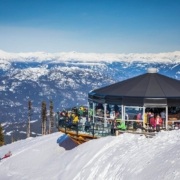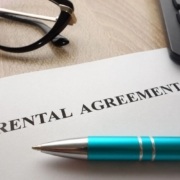A Comprehensive Guide to San Diego’s Short-Term Residential Occupancy (STRO) Rules
If you’re considering entering the bustling world of Airbnb or similar short-term rentals in San Diego, it’s essential to be well-versed in the city’s Short-Term Residential Occupancy (STRO) regulations. Adhering to these rules ensures a smooth hosting experience and keeps you on the right side of the law.
- Best Cities for Airbnb in USA: Top Big US Cities for Airbnb Investment
- Why San Diego is the Golden Ticket for Airbnb Investments
- Explore How to Start an Airbnb Business in San Diego, CA
- From Booking to Banking: Making Big Profits with Airbnb in San Diego
- The Best Cities for Airbnb in the San Diego Metropolitan Area
- Airbnb’s Best Investment Neighbourhoods in San Diego
- Best Airbnb Management Companies in San Diego, CA
- San Diego Condos Welcoming Airbnb Guests
Why Understanding STRO is Crucial
The attractiveness of San Diego as an Airbnb destination makes it even more vital to understand the STRO rules. With high demand comes increased scrutiny. The city has implemented these regulations to ensure the safety and comfort of both guests and residents. Moreover, as the short-term rental market continues to grow, it’s likely that there will be further updates and changes to the STRO regulations. Staying updated ensures you can adapt and thrive in this ever-evolving market.
Recent Updates to STRO Licensing
First and foremost, as of October 6, 2023, it’s crucial to be aware that the application window for Tier 4 STRO licenses has concluded. However, those interested in Tier 1, 2, & 3 licenses are still in luck as applications remain open. Importantly, since May 1, 2023, it’s been mandatory to possess a valid STRO license to operate legally in San Diego.
Useful link: Short-Term Residential Occupancy (STRO).
Seeking Clarification on Licensing and Ordinance Details?
For those who are uncertain or have questions concerning the licensing process or the broader STRO ordinance, we highly recommend reaching out to the STRO Administration. They can be contacted at 619-615-6120 or via email at [email protected].

Concerns About Enforcement?
Should enforcement of the STRO ordinance be a concern or if any questions arise in this domain, it’s advisable to get in touch with the Building and Land Use Enforcement (BLUE) team. They’re available at 619-533-6489 or can be emailed at [email protected].
Deciphering STRO License Tiers
To navigate the STRO licensing landscape effectively, it’s essential to understand the different tiers available:
Tier 1: Part-Time. This is best suited for those who plan to rent out their property for 20 days or less annually. The bonus? The owner or permanent resident doesn’t need to be present.
Tier 2: Home Sharing. Ideal for those looking to rent rooms for more than 20 days a year, with the condition that the owner or a permanent resident resides on the property. A notable feature is that the owner or resident can take a break and be absent for up to 90 days in a calendar year.
Tier 3: Whole Home (excluding Mission Beach). If you’re considering rentals exceeding 20 days annually without needing to stay onsite, this tier might be for you. However, you should consult the City of San Diego Community Plans Map to ensure your dwelling unit’s location.
Remember, there’s a mandatory usage of at least 90 days per year to retain this license. Plus, there’s a two-night minimum stay requirement for guests.
Tier 4: Mission Beach Whole Home. This is for properties within the Mission Beach Community Planning Area (CPA) that are rented for more than 20 days annually without the owner or resident being present. Again, a two-night minimum stay is required for guests.
A Few Parting Notes
For aspiring hosts, it’s pivotal to note that you can hold only one license at a time. This means you cannot operate multiple dwelling units for STRO simultaneously. Moreover, these licenses are location and ownership-specific, meaning they cannot be transferred.
Maximizing Your Airbnb Potential in San Diego
Beyond just adhering to rules, San Diego’s potential as an Airbnb hotspot means hosts should aim for excellence. This involves:
- Professional Photography: High-quality photos can make your listing stand out.
- Local Tips: Offering guests insider knowledge on the best local spots can elevate their experience.
- Transparent Communication: Always keep your guests informed and updated, ensuring smooth check-ins and check-outs.
- Regular Maintenance: Ensure your property is always in top condition. Regular maintenance checks can prevent potential issues and negative reviews.
To Wrap It Up
Navigating the short-term rental scene in San Diego might seem daunting, but with the right knowledge and a proactive approach, it’s entirely manageable. We advise all potential hosts to familiarize themselves with the STRO rules, ensuring they provide not just a fantastic experience for their guests but also operate within the city’s legal framework.
For those feeling overwhelmed or seeking expert assistance, it might be beneficial to contact the MasterHost team. They can provide guidance, ensuring you not only adhere to all regulations but also maximize your hosting potential.
- A Guide to Airbnb Rules in Oceanside, CA
- Navigating San Francisco Short-Term Rental Laws
- Investing in Airbnb in Oceanside, San Diego Metropolitan Area
- Dates to Remember When Running an Airbnb in Oceanside
- Navigating the Complexities of Yucca Valley Short-Term Rental Regulations
- Pasadena Airbnb Regulations Hosts Need to Know: Your Guide to Successful Hosting
- Mastering the Short-Term Rentals in Mammoth Lakes: Insights and Strategies












